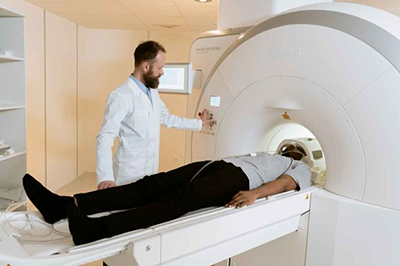
By Khalil Abdullah
Charles McKinley Reynolds Jr., at 83, had led a full life: a devoted family, loyal friends, and success in business. A Type-2 diabetic, he was attentive to regular check-ups and had survived colon cancer through the guidance of his then-physician and friend, Dr. Tom Scott, and later prostate cancer, through treatment at Johns Hopkins Hospital in Baltimore.
In November 2020, Reynolds’ breathing was labored. He checked into NCH Hospital near his home in Naples, Florida, and was diagnosed with aortic stenosis, the hardening of heart valves, not uncommon in elderly patients. He was helicoptered the next day to Tampa General Hospital under orders by Dr. Guilherme Oliveria, head of Tampa General Cardiology. Expectations were Reynolds would undergo transcatheteraortic valve replacement (TAVR), a less invasive procedure than implanting a valve by open heart surgery.
The pancreas, situated behind the liver, produces hormones that assist in digestion and control of blood sugar levels. Pancreatic cancer, as in Reynolds’ case, is often detected too late to save a patient’s life.
“Charles was in great pain and suffered terribly,” Ms. Reynolds recalled. “He went to the hospital just before Thanksgiving and decided to come home after the TAVR. I said, ‘Are you sure, because you know what that means?’ He said, ‘Yes, I’ve had my talk with God and I’m ready to come home. I don’t want to die in the hospital.’ We got him home on Tuesday. By the following Saturday, the day after Christmas, he was deceased.”
“Before the valve replacement, a biopsy found stage four pancreatic cancer, meaning the cancer had spread beyond the pancreas, in this case to his liver,” explained his wife, Reesa Motley Reynolds. “Nonetheless, they did the TAVR because they thought it would help him get stronger, with better breathing and blood circulation, so he could then go to the Moffitt Cancer Center, a premiere cancer facility, and be treated for the pancreatic cancer.”
But Reynolds always was a man with vision. While still hospitalized, wife at bedside, he arranged a conference call with lifelong friend, Dr. Louis Sullivan, the first African American to head the U.S. Department of Health and Human Services and an over two-decade president of Morehouse Medical College; Dr. Scott, and a mentee, Dr. Alvin Harris, a fellow Morehouse College grad, as was Reynolds. Reynolds obtained a commitment that the quartet would launch a platform to expand research and public awareness about pancreatic cancer with a focus on pain management and, particularly, on how African Americans are affected by the disease.
“We fulfilled our promise by establishing the Charles McKinley Reynolds Jr. Pancreatic Cancer Pain Management Initiative,” Ms. Reynolds said. “From January 2021 and the following two years after Charles died, we assembled a working board of physicians, researchers, and others, and developed marketing tools. Our website debuted in January 2023.”
“In April, we were honored to join a delegation of about 40 minority health advocates and practitioners, under the auspices of the National Minority Health Quality Forum headed by its president, Dr. Gary Puckrein, to attend a White House discussion on President Biden’s Cancer Moonshot Initiative. The Moonshot goal is to cut the cancer death rate by 50% over the next 25 years, and to increase early detection.”
During November, Pancreatic Cancer Awareness Month, Ms. Reynolds said the institute will introduce a YouTube podcast series: “Until There is a Cure,” where she will interview physicians, pancreatic cancer survivors and family members who have faced the trauma of caregiving.
“African American men have higher rates of pancreatic cancer than African American women, and African Americans as a cohort, have higher rates than White Americans. We’re beginning to explore data on Latinos and Asians,” Ms. Reynolds said. “We don’t yet know if there is a causal link between Type 2 diabetes and pancreatic cancer. We haven’t seen evidence of robust clinical trials to test that hypothesis, so there is a need to fund that research.”
“As a key part of our mission, the podcast series will feature discussions about pain management. Within the health care universe, there resides this pervasive myth that African Americans can tolerate greater pain than others. That ignorance often results in inadequate, improper, or simplistic interventions or dosages for pain, for example, that morphine is the most effective regimen.”
Ms. Reynolds had her own negative experience with morphine. “I did well using dilaudid as an alternative. Charles, zombie-like under morphine, was more alert with dilaudid as well. It doesn’t work for everyone, but it worked for him. But the point is for family members to learn how to become better advocates for loved ones. I know Charles would have done the same for me. He was the man who taught me love.”


Be the first to comment